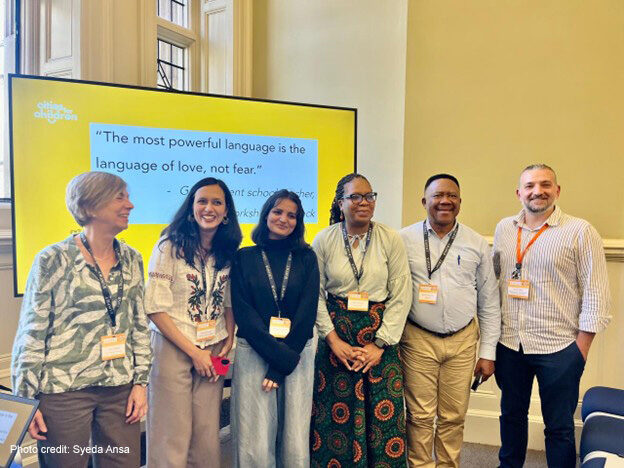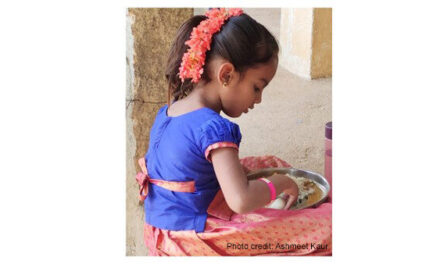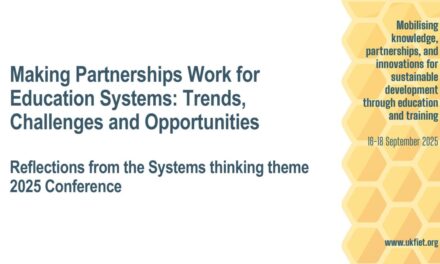This blog was written by Syeda Ansa, Senior Programme Officer, Cities for Children. For the 2025 UKFIET conference, a record 37 individuals from 15 countries, including Syeda, were provided with bursaries to assist them to participate and present at the conference. The researchers were asked to write a short piece about their research or experience of attending the conference.
At the UKFIET 2025 conference in Oxford, I shared Cities for Children’s ‘Maar Nahi Pyaar’ (Care, Don’t Scare) initiative which I lead in Pakistan, reflecting on how compassion not punishment can transform classrooms into spaces of trust, dignity and learning.
Walking through the historic halls of Oxford, I was reminded of how education is both deeply local and profoundly global. In Pakistan, where I work, many classrooms still echo with the sounds of strict discipline, often enforced through fear rather than understanding. Yet the heart of education, I believe, must rest on compassion.
At Oxford, I presented ‘Maar Nahi Pyaar’, an initiative that reimagines discipline by placing empathy and respect at the centre of teaching. It was not just a presentation, but a chance to reflect on how small classroom practices can connect to wider global conversations on child wellbeing, inclusion and equity.
Discipline has always been one of the most complex and contested aspects of schooling. Around the world, corporal punishment continues despite strong evidence of its harmful effects on children’s learning, safety and mental health. In South Asia, and particularly Pakistan, it has long been accepted as a way to maintain order. But behind the silence of ‘disciplined’ classrooms often lies fear – fear may control behaviour, but it does not nurture curiosity, resilience or trust.
Listening to other presentations at UKFIET, I realised this challenge is not confined to Pakistan. Whether in under-resourced classrooms or high-income schools, educators everywhere are searching for discipline practices that are fair, inclusive and supportive of learning.
Maar Nahi Pyaar was created to challenge those harmful traditions and to offer teachers alternative approaches grounded in compassion. The programme helps teachers explore positive discipline strategies, classroom management techniques and the role of emotional intelligence in their practice. Its message is simple but deeply transformative: respect and empathy are more effective motivators than punishment.
Sharing this work in Oxford allowed me to see how a local initiative can sit within a global dialogue. While the project is rooted in Pakistan, its principles resonate internationally. Every teacher, no matter where they are, faces the same question: how to balance authority with humanity.
Presenting in Oxford was both humbling and inspiring. The conference brought together people from across the world, researchers, policymakers and practitioners all committed to rethinking education in more inclusive and humane ways. In the discussions that followed my presentation, colleagues from Africa, Latin America and Europe shared their own stories of replacing fear with empathy in classrooms. These conversations reminded me that while education systems differ, the challenge and the hope remain universal.
For me, the experience reaffirmed that small-scale, local projects can spark global reflection. The stories of Pakistani teachers choosing compassion over punishment resonated far beyond South Asia.
Compassion, I have come to believe, is not a luxury in education, it is a necessity. When teachers are supported to replace punitive practices with positive discipline, classrooms transform into spaces where children feel seen, respected and safe enough to learn.
As I reflect on my experience in Oxford, I see that the future of education lies not only in policies or curricula, but in the everyday choices teachers make. If those choices are guided by compassion, schools can become places that nurture rather than harm, inspire rather than silence, and help children flourish, not just as students, but as human beings.





